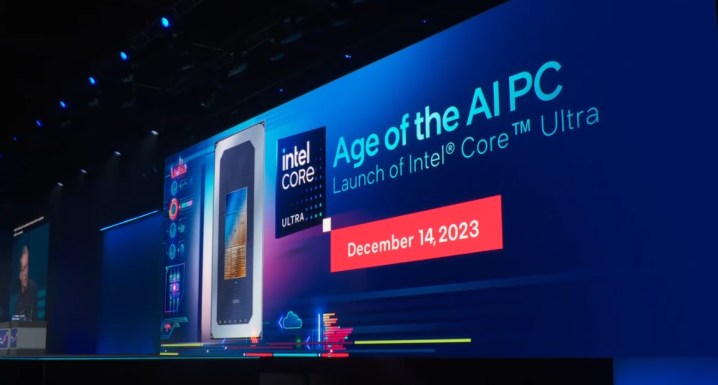One of the most interesting features of Intel’s recent Core i9-14900K is its AI-assisted overclocking. Available through the Extreme Tuning Utility (XTU), AI Assist is billed as the natural next step of automatic overclocking. It uses AI to push chips further rather than relying on a predetermined list of checks that Intel already offers through XTU.
That’s the pitch, at least. But according to my own testing, AI Assist doesn’t do much of anything.
Not only does it provide minimal benefit by being restricted to the Core i9-14900K, it also shows the dangers of haphazardly adding AI in places where it doesn’t belong. That’s a shame, too, because we’ve seen some clear examples of how AI can enhance performance on PCs. AI Assist doesn’t fit in that mold.
Too little to matter

Don’t get your hopes up for a big performance boost out of AI Assist. It takes about 45 seconds to run the feature on your PC, and Intel says XTU tests applications during that window to determine the optimal overclocking settings. AI Assist is supposed to go beyond what the automatic overclocking in XTU offers, but it actually produced identical results.
The result: a whopping 100MHz boost across all cores. I ran the overclock through Cinebench R23, which produced a 1.5% improvement in multi-core performance and a 1.6% improvement in single-core performance. When testing a real application, there’s no difference at all. In our Handbrake transcoding benchmark, the AI Assist overclock produced an identical result to a stock Core i9-14900K.

I’ve never expected huge performance gains out of an automatic overclocking feature, but what’s frustrating is that the automatic overclocking in XTU produced the exact same overclock settings, along with identical performance. It’s not clear what AI is doing here, but from my testing at least, it’s no better than the otherwise limited automatic overclocking already present in XTU.
The application is the problem here, and that’s true on two fronts. First is the Core i9-14900K. This is already a chip pushed to its absolute limits, as it’s essentially a juiced-up version of last-gen’s Core i9-13900K. It doesn’t provide a huge performance lift, as you can read in our Core i9-14900K and Core i9-13900K comparison, so expecting overclocking to do much — AI or otherwise — isn’t a good idea.
It’s also the application of AI to overclocking. You could imagine how AI could be useful for automatic overclocking — train a model on thousands of different PC configurations and their components and use those patterns to figure out optimal settings — but it doesn’t look like Intel is doing much with AI Assist. I don’t know what’s going on behind the scenes, but whatever it is, it doesn’t appear too sophisticated. And based on the final result, that still holds true.
Wrong application

We’ve seen plenty of examples of AI being applied where it shouldn’t be this year, but the disappointing thing about AI Assist is that it could work. It just doesn’t do much right now with the Core i9-14900K and Intel’s seemingly basic AI implementation.
AI can dramatically improve the power of a PC, and we have a great example of AI doing just that: Nvidia’s Deep Learning Super Sampling (DLSS). It started off as just an AI-assisted upscaling tool, but it has grown to apply AI to frame generation and ray tracing denoisers, with all three working to improve performance and the gaming experience on PC.
DLSS and AI Assist aren’t the same thing, but DLSS is a prime example of applying AI to a problem and seeing tangible benefits from it. AI Assist is not. It’s applying AI in a situation where the performance gains are already limited, and doing so in a way that doesn’t do anything to improve the performance or user experience.
Intel has been pushing AI hard, as has the rest of the computing world. Its next-gen Meteor Lake chips come with a dedicated AI processor, despite the fact that the only clear application for one is Windows Studio Effects. We now have AI-assisted overclocking, despite the fact that the days of minor overclocks producing big performance jumps are far behind us. And next month, Intel is launching its next-gen CPUs for laptops with an event titled “AI Everywhere.” I’m not against AI being everywhere, but it needs to make sense.
AI Assist in XTU unfortunately doesn’t. It could be a great feature, particularly for lower-end chips that have some headroom to spare. And it could bring AI into the fold in a place where it matters, given that the model behind the scenes is truly delivering something you can’t get with a one-click overclocking tool. It’s possible we could see that in the future from AI Assist, but it’s not here now.




